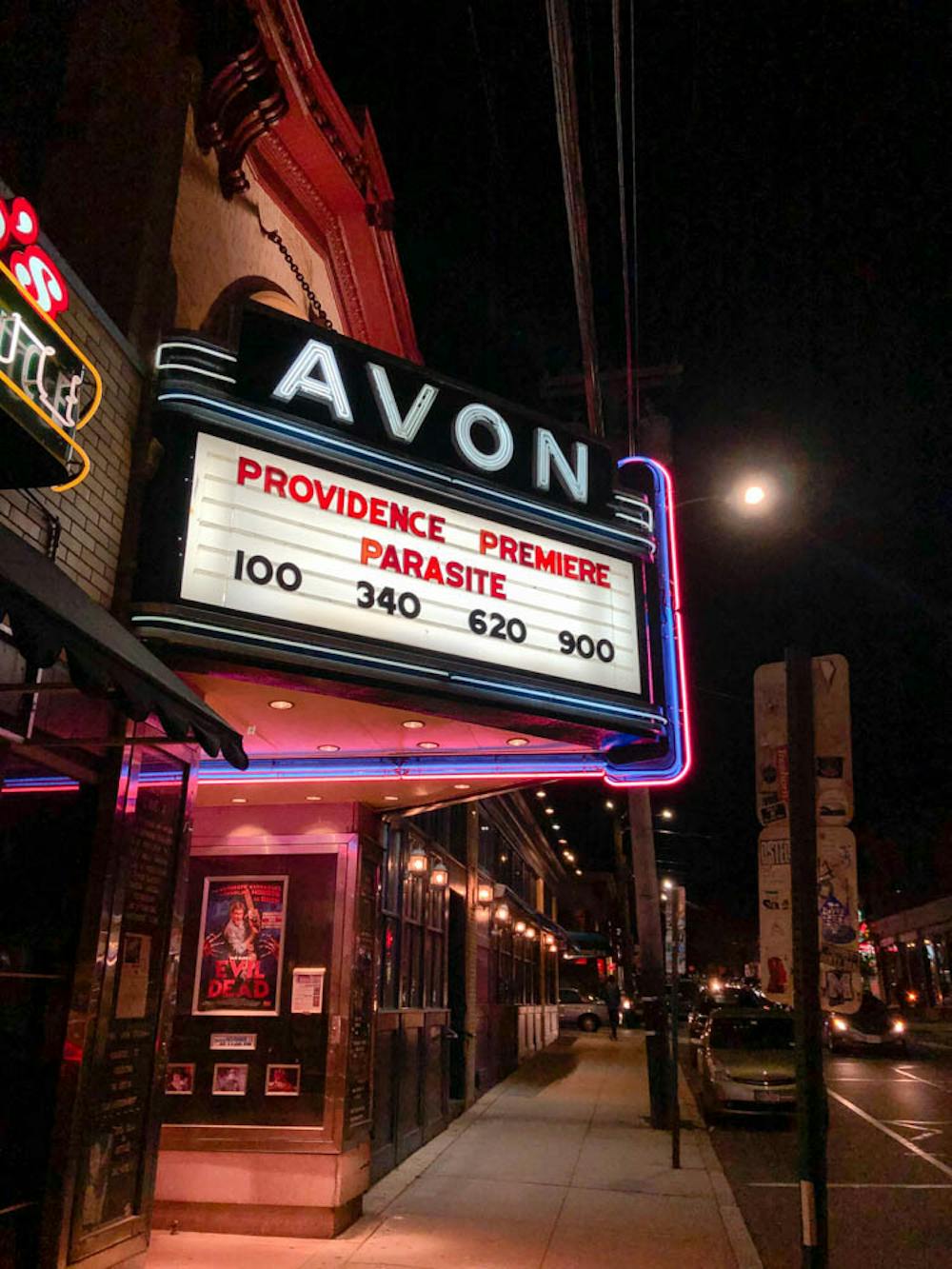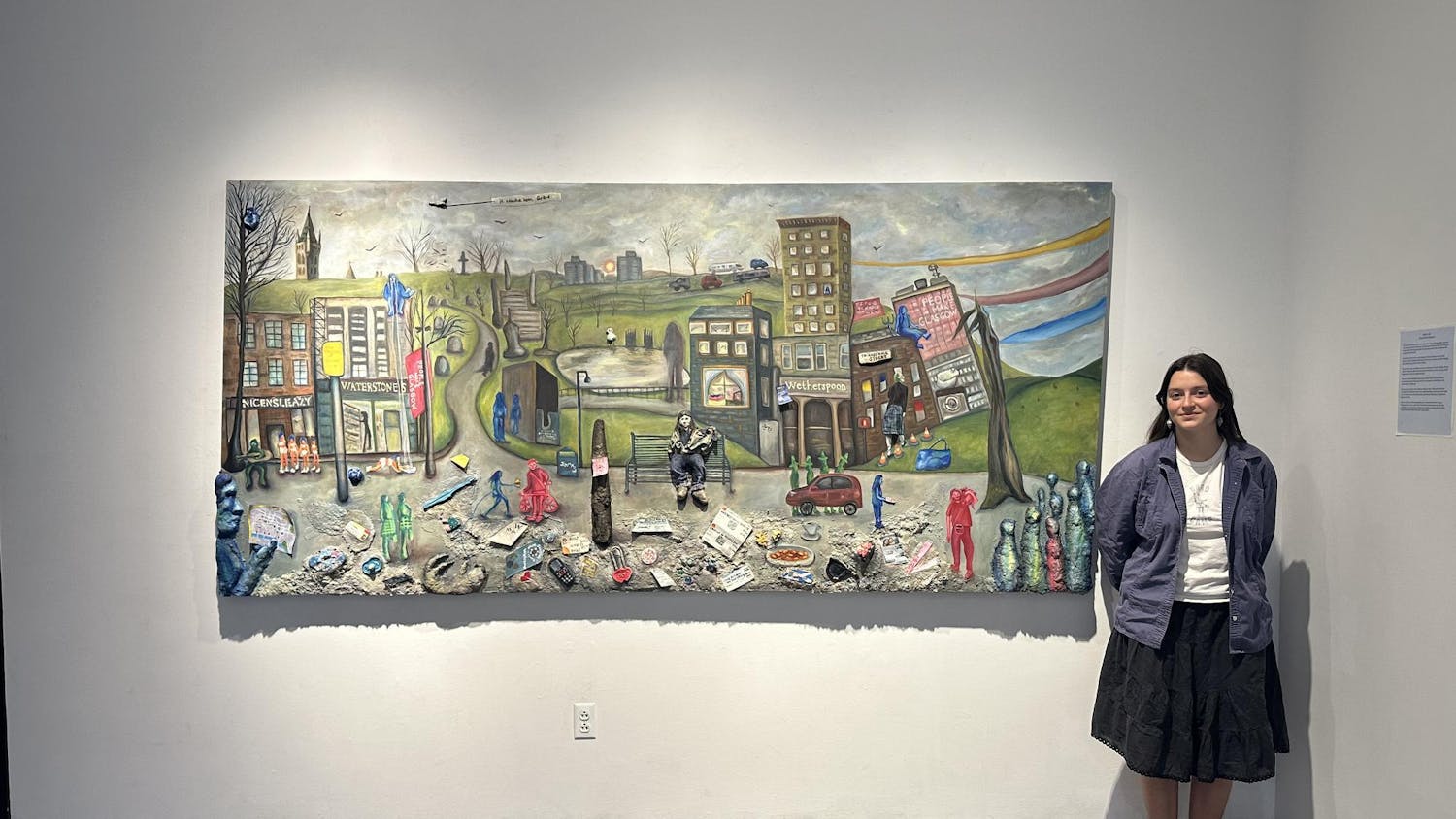The South Korean film “Parasite” has continued to shock audiences across the globe ever since it won the Palme d’Or award at the May 2019 Cannes Film Festival.
Directed by the highly acclaimed South Korean director Bong Joon-ho, also responsible for the dystopian movies “Snowpiercer” and “Okja,” the film follows the symbiotic-later-turned-parasitic relationship between the unemployed Kim family and the wealthy Park family.
In an industry with a surplus of content and low barrier to entry, it is increasingly challenging for creators to produce something of true revolutionary caliber. But according to critics worldwide, Bong Joon-ho has managed to do it again — with flying colors.
The story opens in the city of Seoul — more specifically, in the humble, dingy, roach-infested basement apartment of the Kim household. The two unemployed adult children, Ki-woo and Ki-jung, along with their also unemployed father, Ki-taek, and mother, Chung-sook, fold pizza boxes for change that barely pays the bills. Desperation saturates their every action. From keeping their windows open during the toxic, city-wide fumigation for free pest control to scavenging around their apartment for signals from neighboring coffee shops’ free Wi-Fi, they witness their necessities evaporate into unaffordable luxuries.
The family’s willingness to do literally anything to escape poverty accelerates to new heights when a golden job opportunity falls into the son Ki-woo’s lap — an old friend refers him as the new English tutor for the daughter of the wealthy Park family.
With a forged diploma and degree (a nod to his sister’s elite Photoshopping skills) in hand, he is hired, and just like that, a “have-not” steps one cautious foot into the lavish world of the “haves.” Blown away by the Parks’ stunning estate, Ki-woo hatches a plan from his very first day on the job. He refers his sister Ki-jung to become the new art therapist of the Park’s disturbed young son. With her aforementioned Photoshopping skills and unfinished art education, she breezes through the interview: “I Googled ‘art therapy’ and ad-libbed the rest,” she brags afterward. Together, they then plot to get the chauffeur fired and replaced with their father, and eventually, the longtime housekeeper with their mother.
With every scheme more elaborate, more ambitious and more ridiculous than the former, the audience cannot help but laugh at the Kims’ incredulity and Parks’ gullibility. The expertly written screenplay wields a sharp comedic timing that immaculately nails the rude hilarity behind the Kims’ fake subservience at the expense of the oblivious Parks. The jokes do not one-dimensionally poke fun at the tomfoolery of the rich; rather, their ambiguity in portraying the multi-dimensional motives and malice of both sides underscores that there are neither villains nor heroes in this story.
When the Parks leave for a camping vacation, the Kims take over as temporary kings of their massive playground. But their reign is cut short when the old housekeeper pays them a visit and brings a harrowing, chilling secret with her. With this arrival, the plot’s power struggle is suddenly diverted to a new arena. The focus is no longer solely on the warfare between the rich and the poor. Now, it is the fight between the poor and the poorer, competing for the scraps and crumbs of the rich, that takes the main stage.
In this fight, the film poignantly portrays the sad reality of the unequal socioeconomic distribution in many societies beyond just that of South Korea. The fact that the livelihoods of those at the bottom of the ladder literally hinge on the superficial decisions of the rich is brazenly underscored.
The narrative then escalates to chaos, coating the pristine white walls of the Park residence with broken glass, blood, booze, peaches and dirty secrets. The world that the Kims strove so carefully to create comes crashing down, as do all cinematic norms and audience expectations.
Bong Joon-ho masterfully employs both acoustic and cinematic direction to immerse viewers so deeply in a world that no matter how absurd it becomes, it remains believable and inescapable. Many scenes are filmed with a wide-angle lens situated in a still shot, giving the illusion of an unrestrained view, but always leaving the possibility that there is something crucial lying just outside of the frame. The musical score is subtle and used sparingly, so as to build palpable tension that keeps viewers holding their breath. Through such mechanisms, this twisted and satirical social commentary is able to perfectly teeter along the many lines of thriller, comedy, suspense and drama.
In the end, even the film’s title proves to be deceptive upon first and last glance. Who are the parasites in this story? The Kims, who cling onto every sign of wealth in hopes of turning it into their own? Or the Parks, who must blindly rely on servants and their skills to live their normal, day-to-day lives? We don’t know, and that is exactly the dialogue that Bong Joon-ho sparks with such a mind-provoking, dichotomous narrative.
“Parasite” will show at the Avon Cinema on Thayer Street until Nov. 21.





